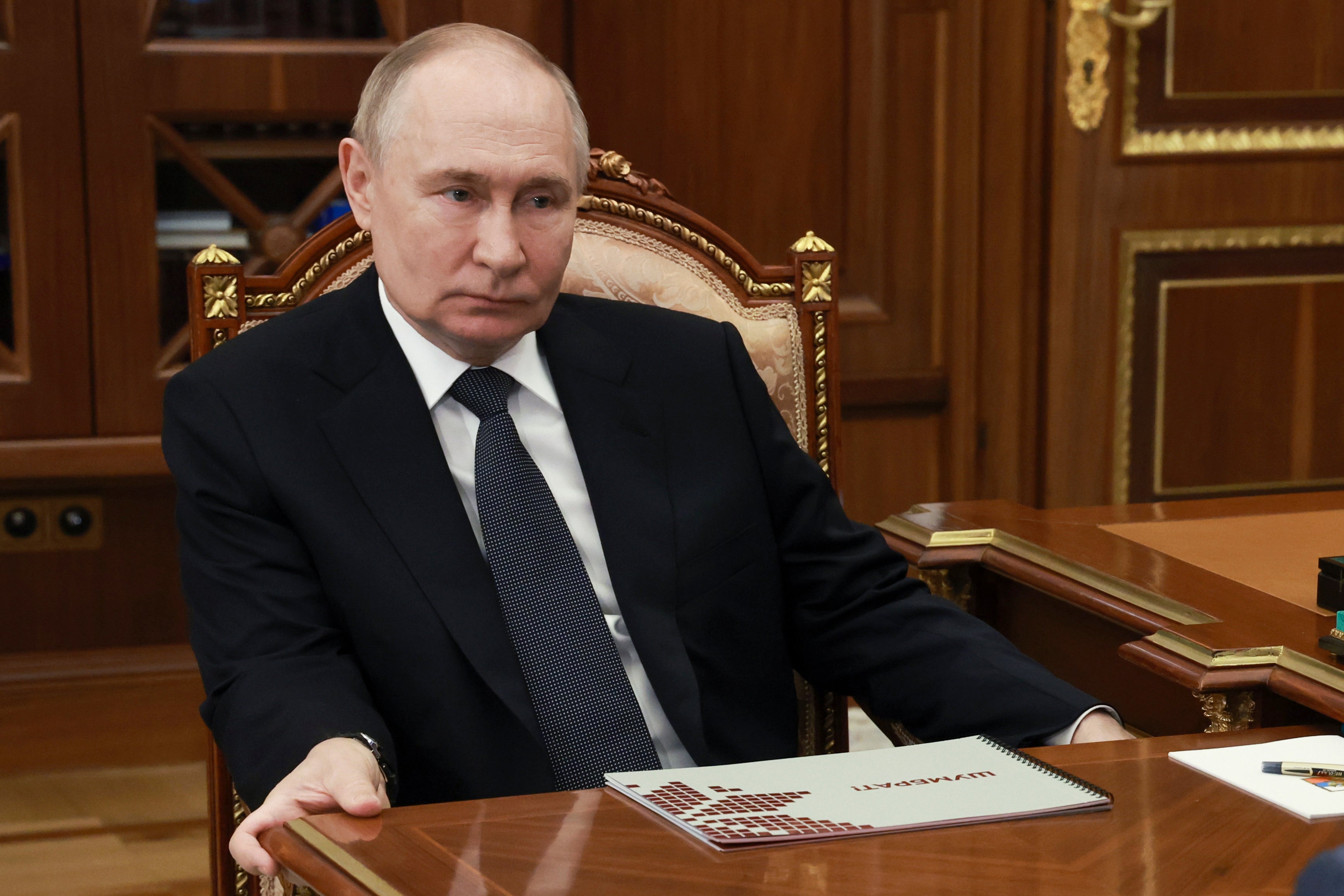Putin called him a patriot. But who is Vadim Krasikov, a Russian released in the mass prisoner swap?
Vadim Krasikov, the Russian at the center of a massive prisoner swap, has long topped the Kremlin’s list for an exchange

Vadim Krasikov, the Russian at the center of Thursday's mass prisoner swap, has long topped the Kremlin's list for an exchange. President Vladimir Putin hinted earlier this year that he was interested in such a trade to free a “patriot” held in Germany.
Now Krasikov, 58, is being released by Germany, where he has been imprisoned for murder.
What was Krasikov's crime?
Krasikov was convicted for the Aug. 23, 2019, killing of Zelimkhan “Tornike” Khangoshvili, a 40-year-old Georgian citizen who had fought Russian troops in Chechnya and later claimed asylum in Germany.
Khangoshvili was gunned down from behind near Kleiner Tiergarten, a central Berlin park, with a silencer-fitted handgun. Witnesses saw the gunman throw a bike, a gun and a dark wig into the Spree River nearby. Police arrested him before he could escape on an electric scooter.
At his sentencing to life in prison in 2021, German judges said Krasikov had acted on the orders of Russian authorities, who gave him a false identity, passport and the resources to carry out the killing.
Krasikov reportedly served in a special forces unit that belonged to the Federal Security Service, or FSB, the top KGB successor agency.
For Putin, a KGB veteran, freeing Russian operatives is important for the success of future undercover missions, showing that Moscow would negotiate for the agents' release even if they are caught.
How did the case affect Russian-German r elati ons?
The case triggered a major diplomatic row between Russia and Germany, including tit-for-tat diplomatic expulsions.
Krasikov and his lawyers contested his guilt, saying at the start of the trial that he had been misidentified and was born in Russia in 1970, not in Kazakhstan in 1965.
Presiding judge Olaf Arnoldi said Krasikov — a twice-married father of three — had no previous convictions, but records showed he had been sought by Russian authorities in the killing of a businessman in Moscow in 2013. The case was dropped in 2015.
What did the Kremlin say about Krasikov's case?
When Krasikov was arrested, Kremlin spokesman Dmitry Peskov called the allegations of Russian state involvement “absolutely groundless.”
In a February 2024 interview with former Fox News host Tucker Carlson, Putin signaled that Russia was willing to swap Krasikov for Wall Street Journal reporter Evan Gershkovich, who was jailed in Russia on espionage charges that he, the Journal and the U.S. government rejected.
Putin stopped short of naming Krasikov, but he clearly referred to him while pointing to a Russian “patriot” imprisoned in a “U.S.-allied country” for “liquidating a bandit” who had killed Russian soldiers during fighting in the Caucasus.
What does Germany say about it?
The decision to free Krasikov wasn't made lightly, the German government said.
Chancellor Olaf Scholz’s spokesperson, Steffen Hebestreit, said in a statement the release of people held “wrongfully” in Russia and a German held in Belarus could only be achieved by deporting Russians “with an intelligence background” held in Europe such as Krasikov.
“The freedom, physical well-being and –- in some cases -– ultimately the life of innocent people imprisoned in Russia and unjustly held political prisoners stood against the state’s interest in the enforcement of the prison sentence of convicted criminal,” Hebestreit said.
“Our obligation to protect German citizens and solidarity with the U.S. were important motivations,” he added.
Bookmark popover
Removed from bookmarks